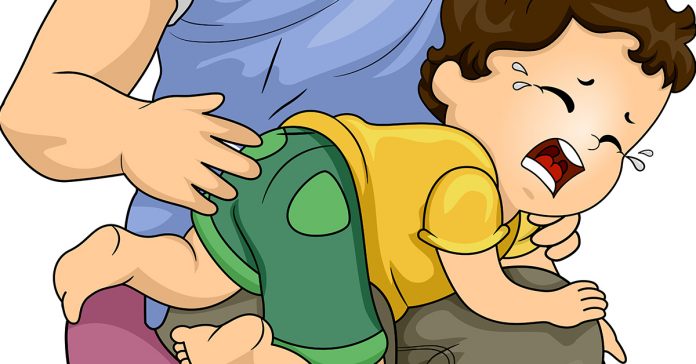For those of us that are a little older, you may be more than familiar with receiving corporal punishment for any wrongdoings you may have committed.
In fact, depending on your culture, society, and the country you grew up in, it may be possible that you were still seeing children receiving spanking or some equivalent as recently as the early 2000s.
This is especially so in Asian cultures, where there is a cultural belief that having your child be properly disciplined is a sign of love.

During the last few decades, however, this practice has been called into question – even in societies that have otherwise pushed back against the global cultural shift in parenting methods.
And there is a strong reason for this sudden reexamination of our historical methodology of disciplining our children – it may just give us the opposite result we want.
Really though, any rebellious child (or ex-child!) can tell you as much.
Observation alone easily reveals that corporal punishment often creates fear and distress, which can affect a child’s mental development.

Frankly speaking, corporal punishment is abuse, although many parents don’t see it that way.
It is an act of discipline that simply punishes the behavior, without truly finding out the reason behind the behavior in question.
All it does is instill fear, which either causes negative emotional and mental development, or teaches the child that they have to be sneakier and more careful about being caught.
To truly solve a problem, you would need to sit down with the child and take the time and effort to dissect the underlying emotions and situations that caused it, and then teach your child how to react appropriately in the future.
It is a lot of work, and not all parents know how to do it or are willing to do so.

Fast forward to present day, this easy observation is finally being backed up by research and science.
The verdict is in – those who found themselves being spanked in their childhood have an increased likelihood of becoming abusive when they grow up.
This scientific evidence is often brushed over by supporters of corporal punishment, who point out that they have undergone similar treatment and turned out fine.
The fact is, however, that there is now undeniable, recorded proof that this harms children.
Just like how women used to smoke and drink alcohol while pregnant and claimed they delivered their babies just fine, these behaviors are no longer encouraged due to scientific evidence that they negatively affect the development of the fetus.

To add more fuel to the fire, scientists have claimed that for many parents, the physical abuse that they partake actually winds up being for the benefit of the parent more than the child.
This is because it often ends up serving as a retaliatory and emotional release for the disciplining parent, whether they are intentional about this or not.
Considering just how damaging this sort of behavior can be to our children, it is time to stop this cycle of abuse and plot a new course for our children’s future.
SEE ALSO:
Study Finds Magnesium Treats Depression Better Than Antidepressant Drugs
























